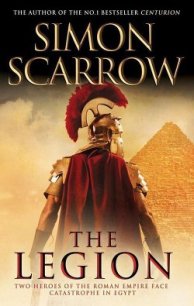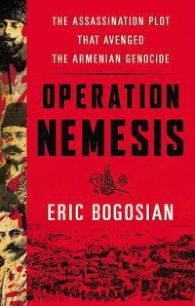The Forgotten Legion - Kane Ben (читать книги онлайн полностью без сокращений txt) 📗
The old man cleared his throat. 'The omens stand!' he cried. 'In the blood, I saw a mighty victory from the gods!'
The men glanced at each other, many quickly making the sign against evil, others rubbing the lucky amulets that hung from their necks. They had not seen the bowl's contents. What they had seen was Crassus dropping the bull's heart, an ultimate symbol of courage. Hands grew clammy and feet shuffled on the sand. Instead of cheers, an uneasy silence hung in the air.
Looking up, Crassus saw a group of twelve vultures floating on the thermals. He was not the only one to notice. There was no time to lose.
'Soldiers of Rome! Do not be troubled,' he shouted. 'The priest's hands are slippery – just as yours will be with Parthian blood!'
Romulus turned nervously to Tarquinius.
'He is a fraud,' the Etruscan said quietly. 'But do not fear. We may yet survive.'
His comment was hardly reassuring. It seemed impossible that Crassus' army could be defeated, but the sand-covered heart was still lying on the ground before them all.
Gory evidence.
Romulus found himself wanting to believe in Tarquinius. The alternative did not bear thinking about.
Around them, the legionaries were less than convinced. The general tried to rally their spirits, to no avail. With a savage gesture, he dismissed them, retreating into the tent with his officers. Even Crassus had to admit silently that his effort to inspire the troops had been a total failure. And the news would spread fast. It was nothing to worry about, he tried to convince himself.
But the gods were angry.
Romulus looked back at the wide river snaking off into the south. Soon the army's fate would be as clear as the deep waters flowing swiftly past. Having marched into this vast land, Crassus' men were about to enter more unknown, oriental territory.
Fat tendrils of dawn mist hung low over the waterway, concealing clusters of reeds on the banks. It would not be long before the sun burned off the grey veil, revealing the shore. Reaching the river after many days' march had been a huge relief for the thirsty army, but Romulus and thousands of soldiers waiting in silence would not be able to linger or relax. Crassus and his son Publius were leading them southeast.
The Roman host had travelled hundreds of miles from its beachhead on the western corner of Asia Minor. Every major city in its path had paid large sums of money to avoid attack by such a massive force. Jerusalem in particular had yielded a king's ransom, its elders desperate to preserve its ancient wealth. Once winter had passed, Crassus' legions had crossed Syria to the Euphrates, arriving thirteen months after disembarking from the triremes. By this time, Romulus and Brennus were firm friends with Tarquinius.
The Etruscan had an enormous knowledge of medicine, astrology, history and the mystic arts. Having spent years on campaign with the general Lucullus in Armenia, he was also an experienced fighter. Bassius had quickly noticed his talents and promoted him straight to optio so he could help train the recruits. Tarquinius' sharp sense of humour had blended with Brennus' earthy one and his soothsaying ability complemented the Gaul's huge skill with weapons. Under their tuition Romulus had bloomed, improving not just his fitness and swordsmanship, but learning to read and write as well.
The rumours in the ranks were that they were heading for Seleucia on the Tigris. Romulus knew more about the region now from Tarquinius' stories about the Land of the Two Rivers and the kingdoms that had existed there. He had enjoyed many nights of history lessons, hearing about Babylonians, Persians and other exotic races. Romulus' favourite tale was that of Alexander the Great, a man who had marched from Greece to India and back, conquering half the world in the process.
Now the mighty Parthians ruled the deserts. Originally a small but warlike tribe, the fierce warriors had been absorbing defeated kingdoms for generations, growing until Parthia was rivalled in size only by Rome. It was a sparsely populated empire, peopled by nomads. Parthia's wealth came from taxing valuable goods such as silk, jewels and spices carried by traders returning on caravan routes from India and the far east. Aware of Rome's greed, the Parthians guarded this trade jealously.
But it had attracted the attention of Crassus. And, eager for a rapid victory, he was marching into the desert, in a straight line towards Seleucia.
Cursing the strident trumpet calls, the seven legions, five thousand mercenaries and two thousand cavalry had risen well before dawn. Word was still spreading about Crassus' fumble with the heart, so the legionaries had taken down their tents with typical Roman efficiency, packing them swiftly on to pack mules. The regulars were an excellent example of the Republic's ability to organise, but Bassius' men were less used to the job. Cajoled and threatened by turn, eventually the mercenaries were ready to leave.
The tall earthen ramparts thrown up the previous day outside the town of Zeugma were left in place. Dozens of similar camps marked the army's trail way back into Asia Minor, and would prove useful when returning from the conquest of Parthia.
Crassus had seen no reason to depart from custom. The advance had been led by Romulus' cohort and other units, rather than legion regulars. Crossing the river in hundreds of small reed boats built by the engineers had taken time, but it had been achieved with minimal problems. Only two craft had overturned, spilling their passengers into the water. Dragged under by the weight of armour and weapons, the screaming mercenaries had drowned quickly. It was a trifle compared to the massive force now waiting on the eastern bank. As with Alexander's invasion, single men's lives were unimportant.
At the front of every legion stood its standard-bearer, resplendent in his bronze cuirass and wolfskin head-dress. On a wooden pole above each was a silver eagle gripping golden lightning bolts, the legion's awards hanging below. They were potent symbols of power to every soldier and represented the valour and courage of a unit.
The outstretched wings of the eagle nearest Romulus gleamed in the rising sun. Nudging Brennus, he pointed proudly. It seemed a good omen, and judging by the pleased murmurs in the ranks, the men agreed. Something that was badly needed after what had happened earlier. By now, every man in the army knew that Crassus had dropped the bull's heart.
But Rome appeared triumphant again.
'I've seen too many bloody standards like that from the other side of a battlefield,' sniffed the Gaul, hands resting on his longsword.
Tarquinius said nothing, his eyes searching the heavens. He had not spoken since dawn.
Neither of Romulus' friends felt the same way about the eagles. They did not identify with Rome the way he did. Despite what the legions stood for, he found himself instinctively proud of them. Born a slave, now a mercenary, he was still a Roman.
Behind the standard-bearers came the four hundred and eighty legionaries of the first cohort, the most important. They were followed by nine more of equal size, taking the strength of every legion to nearly five thousand men.
Roman soldiers dressed identically. Long brown cloth tunics were covered by chain mail shirts reaching to the thighs; leather caligae with nail-studded soles clad their feet. Each carried a heavy, curved rectangular scutum. Simple helmets of bronze with wide hinged cheek flaps and a neck guard protected their heads. Every man was armed with two javelins and his gladius. Other equipment and food hung from the yoke, a long forked piece of wood carried over one shoulder.
By contrast, the units of irregulars dressed according to origin. Bassius' men were mostly Gauls, so chain mail, loose tunics and baggy trousers were common. Spears and longswords, elongated rectangular shields and daggers formed their weaponry. Cohorts of Cappadocians in leather armour stood nearby, armed with short swords and round shields. Balearic slingers, African light infantry and Iberian and Gaulish cavalry completed the tally of mercenaries.



